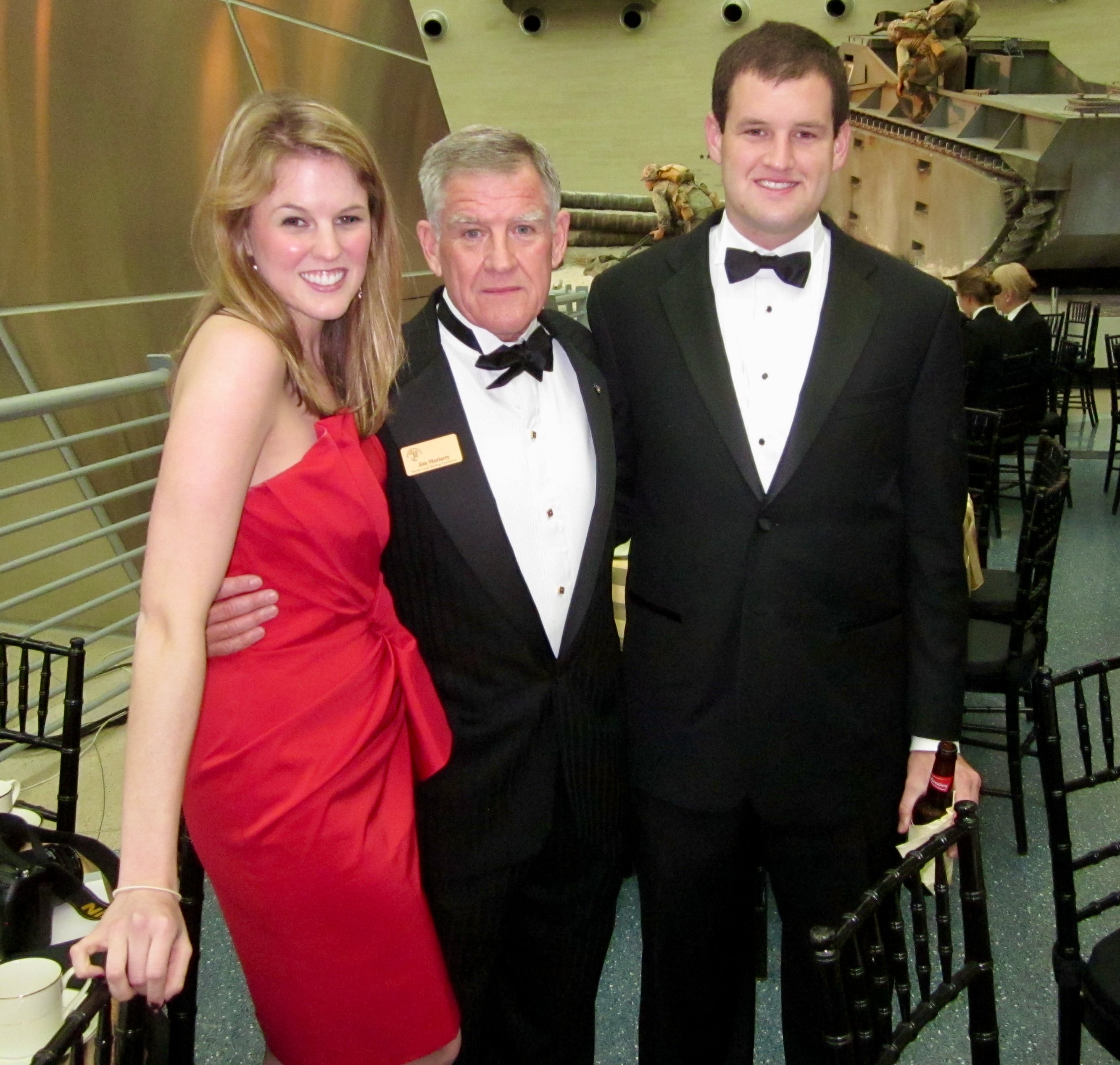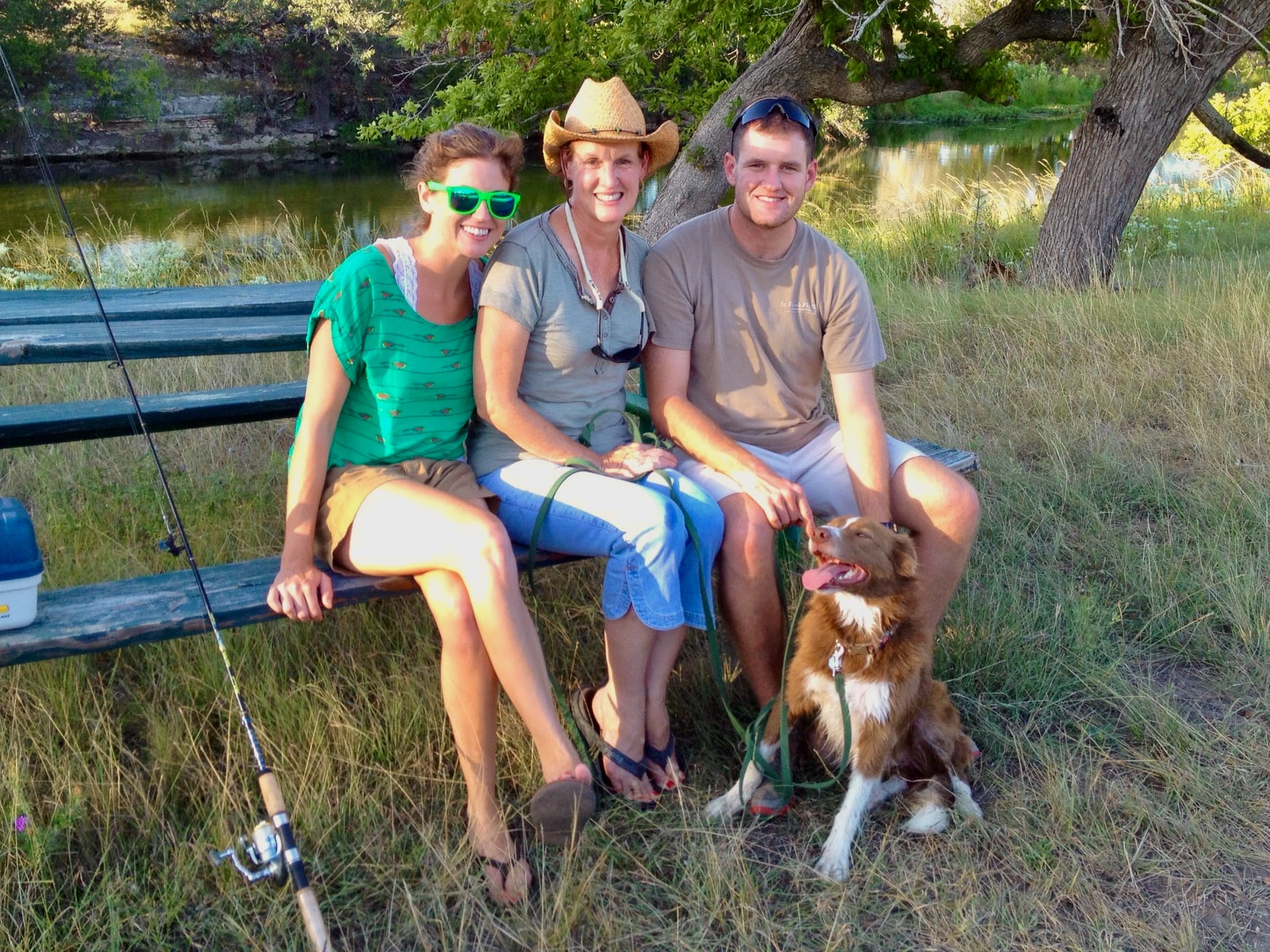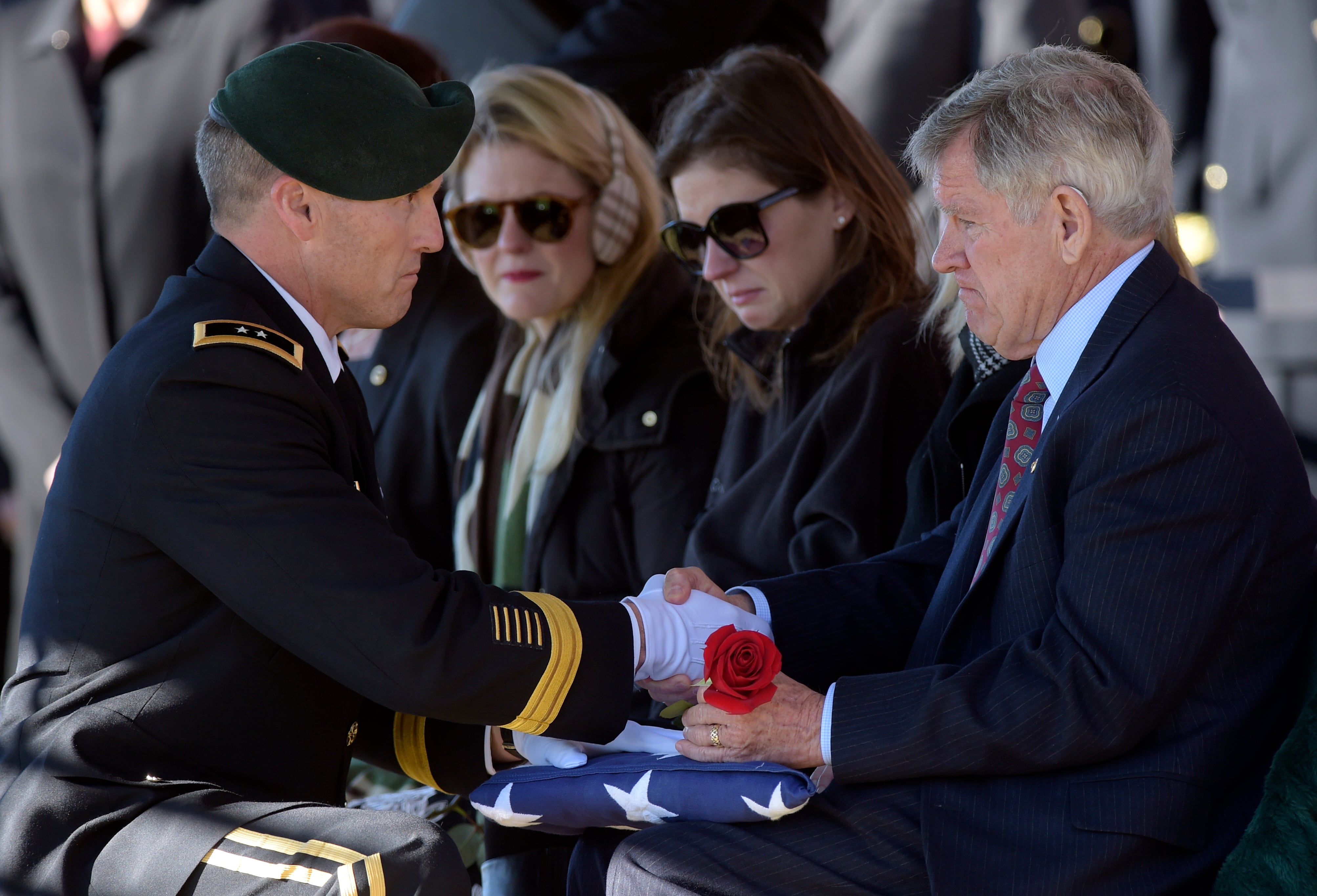Army Staff Sgt. James Moriarty shouted in Arabic for the gate guard at the entrance to Jordan’s King Faisal Air Base to stop firing at him and a fellow Green Beret. But the gunman, armed with an M-16 rifle, ignored the pleas and charged the two Americans anyway.
Moriarty, crouched near a barricade, leaned forward and was shot twice as he fired his own pistol directly at the Jordanian, who, unlike the Americans, was wearing body armor.
Moriarty’s final actions on Nov. 4, 2016, captured by surveillance footage, allowed the other Green Beret to dart around, fire a complete magazine from his Glock 19 and severely wound the assailant. That ended a five-minute attack that still lacks a clear motive but resulted in the deaths of three Green Berets, all of whom were in Jordan training Syrian fighters on behalf of the CIA.
“When that asshole comes around the back of that truck with the M-16 blazing, my son stands up in full view and takes him on,” said Moriarty’s father, Jim Moriarty, during a telephone call. “He was one of the most extraordinary human beings I’ve ever known, and I mourn him every day.”
Four years after the attack, a Silver Star medal was finally approved for Moriarty, largely thanks to his former commander, now-Brig. Gen. Kevin Leahy, and actions taken over the past few months by recently departed acting Secretary of Defense Christopher Miller, according to Moriarty’s father.
“I will tell you that I think Miller was responsible for this,” said Jim Moriarty, adding that he only learned his son would receive the Silver Star about two weeks ago. Before then, “we were stopped dead in our tracks.”
The medal was awarded to the family Wednesday during a ceremony in Houston, which coincided with Moriarty’s birthday.

Miller, a retired Green Beret colonel, served in 5th Special Forces Group, the unit to which Moriarty and the other two fallen soldiers — Staff Sgt. Matthew Lewellen and Staff Sgt. Kevin McEnroe — were assigned.
The Pentagon did not respond to queries about why it took four years to approve the valor award for a soldier whose actions were caught on film and specifically credited by a U.S. Special Operations Command investigation with helping to save the life of another U.S. soldier.
“This award is long overdue and I don’t care what their excuse was for not granting it. It should have been awarded three years ago,” said Moriarty’s father, a Marine veteran of the Vietnam War.
Moriarty grew up in the Houston area and majored in economics at the University of Texas at Austin before he enlisted in 2011. Joining the military was a surprise to his father, but Moriarty was the kind of person who often defied expectations, like when it came to running.
He was “built like a beer can,” his father said. “But he was a beer can that could run like a gazelle.”
“He got up off the sofa after being out drinking all night and ran his first half marathon in an hour and 28 minutes,” the elder Moriarty recalled. “He wanted, above all, to be Special Forces, and he did brilliantly going through the Q Course, all of that training. But he had no ego.”

Family members of the three slain Green Berets have been engaged in legal battles with the Kingdom of Jordan and written to members of Congress in an attempt to secure the extradition of the Jordanian gate guard, Sgt. Ma’arik al-Tawayha, who was sentenced in 2017 by a Jordanian court to life in prison for the killings.
“Part of why I’m demanding his extradition is because I want him interviewed again about what happened. And maybe this time we’ll get the full story,” the elder Moriarty previously told Army Times.
In the months following the attack, Jordan — a country that receives billions of dollars in defense aid from the United States — issued a series of shifting explanations. Jordanians alleged the Americans did not follow proper protocol when entering the base, that they had been drinking and that a loud noise instigated the gate guard’s lethal action.
All of those explanations were dismissed by the SOCOM investigation, but no clear motive for the shooting has been identified publicly. A criminal investigation report requested by Army Times through the Freedom of Information Act was withheld by the FBI on the grounds that releasing it could interfere with ongoing criminal proceedings.
The FBI was similarly guarded with the surveillance video, which proved that the Jordanians’ original explanations for the attack were false, according to Jim Moriarty.

“You cannot imagine what it’s like to see the last few moments of your beloved son’s life. But I had to fight to get that video released, because the FBI agreed not to release the video with the Jordanians,” said the elder Moriarty, who is also an attorney in the Houston area.
Jordanian officials ruled out terrorism in the case, and al-Tawayha pleaded not guilty at trial. He maintained that he felt no animosity toward the Americans and opened fire because he believed the base was coming under attack.
The five-minute encounter began when a group of American soldiers returned to King Faisal Air Base from mortar training. The surveillance footage shows multiple attempts by the Americans to de-escalate the situation by shouting their friendly intentions in Arabic and waving their hands.
The Jordanians waved the first of their four trucks through the gate, and a guard is seen on the video raising a gate. Al-Tawayh, who was in the guard shack, then opened fire on the second truck, containing two of the Green Berets. Numerous shots were fired at close range through that truck’s windshield, killing McEnroe and leaving Lewellen fatally incapacitated.
The Jordanian guard who removed the roadblocks dove for cover. Though he did not participate in the attack, he appeared to do nothing to help the Americans stop it.
The video was not screened at al-Tawayha’s trial, and he did not receive the death penalty, as some of the slain Green Berets’ family members wanted. In Jordan, the death penalty is typically reserved for terrorism cases or for murders that are coupled with another crime, according to the Associated Press.
For Moriarty’s father, though, the video does more than exonerate the three slain Green Berets. It shows the man his son grew up to become.
“In the last five minutes of that video, I see a young man who was smart, engaged, present, wary and protective of the surviving [Green Beret],” the father said. “He had a backbone of steel and was utterly unafraid of the challenge he took on.”
Military Times editorial intern Harm Venhuizen contributed to this report.
Kyle Rempfer was an editor and reporter who has covered combat operations, criminal cases, foreign military assistance and training accidents. Before entering journalism, Kyle served in U.S. Air Force Special Tactics and deployed in 2014 to Paktika Province, Afghanistan, and Baghdad, Iraq.





